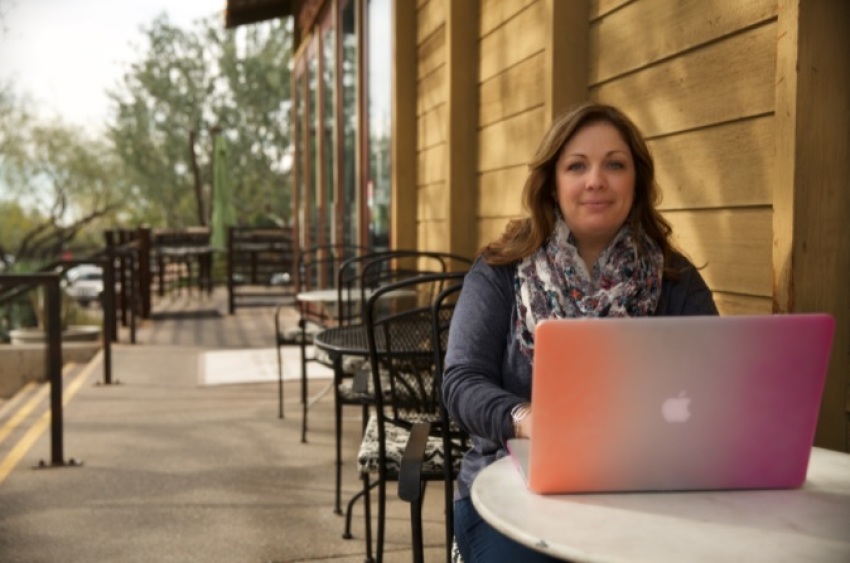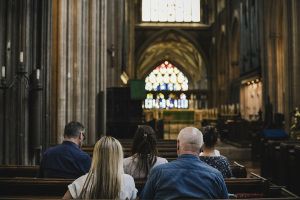Christian web designer opposed to creating same-sex wedding websites appeals to Supreme Court

A Colorado web designer has appealed to the U.S. Supreme Court after a federal appeals court ruled this summer that she must create websites for same-sex weddings if she offers her services for other weddings.
Lawyers representing Lorie Smith of 303 Creative in Denver are asking the nation’s highest court to review the U.S. 10th Circuit Court of Appeals ruling from July that found that her company must provide services for same-sex weddings if it offers services for traditional weddings.
“The government shouldn’t weaponize the law to force a web designer to speak messages that violate her beliefs,” said Kristen Waggoner, a general counsel with the Alliance Defending Freedom, a legal organization representing Smith that has won several religious freedom cases before the Supreme Court.
“This case involves quintessential free speech and artistic freedom, which the 10th Circuit dangerously cast aside.”
Colorado’s Anti-Discrimination Act (CADA) prohibits businesses and places of public accommodation from discriminating based on sexual orientation and gender identity.
Smith filed a pre-enforcement legal challenge in 2016, contending that the law is unconstitutional because it would force her to create wedding websites for same-sex couples against her religious beliefs.
The web designer sought to begin building wedding websites but does not want to provide that service to same-sex weddings because she believes that God designed marriage to be between only a man and woman.
“To begin, Lorie has wanted to enter the wedding website industry for years and has lost opportunities to create and speak because of how Colorado interprets CADA,” the petition to the Supreme Court states. “She has already received a request to create a website celebrating a same-sex wedding, and Colorado continues to threaten prosecution.”
The 303 creative website includes a notice that explains that Smith is “selective about the messages” that she creates or promotes because of her Christian faith.
“As a Christian who believes that God gave me the creative gifts that are expressed through this business, I have always strived to honor Him in how I operate it,” the website reads.
A federal court ruled in 2017 that Smith could not challenge the law, a decision that was upheld in a later ruling.
In July, the 10th Circuit ruled 2-1 against Smith’s appeal with a majority opinion authored by Judge Mary Beck Briscoe, a Clinton appointee.
“Colorado has a compelling interest in protecting both the dignity interests of members of marginalized groups and their material interests in accessing the commercial marketplace,” wrote Briscoe.
“When regulating commercial entities, like Appellants, public accommodations laws help ensure a free and open economy. Thus, although the commercial nature of Appellants’ business does not diminish their speech interest, it does provide Colorado with a state interest absent when regulating noncommercial activity.”
In a press call with reporters, Smith said she has clients ranging from individuals to small businesses and nonprofits.
“I have served and continue to serve all people, including those who identify LGBT,” Smith said. “I simply object to being forced to pour my heart, my imagination and talents into messages that violate my conscience.”
When Smith first started her career, she recognized quickly that the freedom to express religious beliefs was limited. Therefore, she could not be selective about who she worked with, according to Alliance Defending Freedom.
Smith started her own business to be her own boss, the legal group reported.
After giving birth to her first child, she spent time with her baby and jump-started 303 Creative. Being her own boss allowed her to “pursue web and graphic design projects that are consistent with her faith, including many projects on behalf of religious organizations and churches. She often produces art that is original, custom websites including customized text, graphics, images, and more that promote ideas, events, or organizations.”
“While I will serve anyone I am always careful to avoid communicating ideas or messages, or promoting events, products, services, or organizations, that are inconsistent with my religious beliefs,” Smith wrote on her website.
The order issued by the 10th Circuit prevents Smith from putting notes anywhere on her webpage about which kind of websites she will not create. If she fails to comply with the law, Smith could face prosecution under CADA.
The ADF argues that the 10th Circuit ruling contradicts “the 8th and 11th Circuits, as well as the Arizona Supreme Court, which have all ruled that the government may not force artists to speak in violation of their beliefs.”
ADF lawyer Waggoner argues that the “10th Circuit’s reasoning turns free-speech protections on their head by saying that the more ‘unique’ speech is, the more the government can compel it.”
“That kind of dangerous, unconstitutional reasoning is why we have asked the U.S. Supreme Court to take Lorie’s case,” Waggoner said.
In 2018, the Supreme Court ruled in favor of Colorado Christian baker Jack Phillips who faced punishment from the state for refusing to provide a custom wedding cake for a same-sex wedding.
But earlier this year, the high court rejected an appeal by a Christian florist in Washington who was fined for refusing to provide floral arrangements for the same-sex wedding of a longtime customer.



























